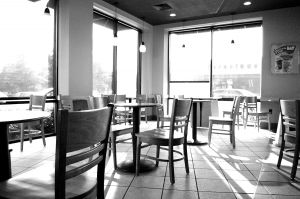

Since the major news about Sinofsky's departure we have been seeing a lot of bad news, including lawsuits over deceptive marketing:
None of this was enough for one guy, however, as Andrew Sokolowski is now suing Microsoft claiming that Microsoft is misrepresenting the device. While he's seeking class action status, unlike many class action lawsuits that are all about money, it's actually nice to see that he's not seeking any money -- just asking Microsoft to stop misrepresenting the product.
Windows 8 Sales Well Below Projections, Plenty of v to Go Around
Sales of Windows 8 PCs are well below Microsoft’s internal projections and have been described inside the company as disappointing. But here’s the catch: The software giant blames the slow start on lackluster PC maker designs and availability, further justifying its new Surface strategy. But Windows 8’s market acceptance can be blamed on many factors.
Hewlett-Packard isn't overly impressed with Microsoft's Surface tablet.
Speaking in an interview published yesterday with IDG Enterprise, HP PC business chief Todd Bradley said that his company could "hardly call Surface competition," adding that the Microsoft-branded tablet is quite flawed.
"One, very limited distribution," Bradley said, listing what he feels are the Surface's greatest flaws. "It tends to be slow and a little kludgey as you use it....It's expensive. Holistically, the press has made a bigger deal out of Surface than what the world has chosen to believe."
Installing Vista SP2 is like dousing a burning turd
This is, obviously, bizarre. A vendor appears to have actually written additional code to check whether an OS claims to be Windows before it'll let it boot. Someone then presumably tested booting RHEL on it and discovered that it didn't work. Rather than take out that check, they then addded another check to let RHEL boot as well. We haven't yet verified whether this is an absolute string match or whether a prefix of "Red Hat Enterprise Linux" is sufficient, and further examination of the code may reveal further workarounds. For now, if you want to run Fedora[2] on these systems you're probably best off changing the firmware to perform a legacy boot.
It turns out that for at least one of Lenovo's computer models, their UEFI implementation is explicitly checking for Windows or Red Hat Enterprise Linux and refusing to boot the UEFI-installed system if neither operating system is reported.
While initially it sounded like yet another SecureBoot issue with Linux, Matthew Garrett investigated and found that the UEFI on the Lenovo ThinkCentre M92p desktop was explicitly checking for the presence of "Windows Boot Manager" and "Red Hat Enterprise Linux" upon installing an UEFI-supported operating system. If the UEFI sees either string within the firmware's descriptive string, the UEFI won't let the system load.
Comments
mcinsand
2012-11-19 17:33:27
Although the new ad campaign is done well, the desperation is still definitely there. MS desperately needs a release that is not a flop. This isn't it, and it could help to further usher-in a world that expects performance and a degree of freedom/choice. In other worlds, a post MS, post Apple world. The duopoly needs MS to continue with the majority share in order to defend the status quo. Otherwise, users will look for (and find) better options. When most people simply used Windows because most people used Windows, there was a bit of safety... as long as FOSS was only a thin slice of the market share. The perception was of only two real options: economy with poor reilibility or reliability with poor economy. With both, performance was sadly compromised. As MS' market share drops, more and more will realize that they can fork over more cash for an overpriced, underperforming Macintoy, but that won't be the majority. Most don't like licenses that amount to technological straightjackets, and most don't want to overpay for what they get. Furthermore, most people actually like choices (although I have had cultmembers assert that the advantage of the Apple is that they don't have to worry with having choices for what they might like best). As options build, and especially as MS deflates, Apple has three monstrous disadvantages from the starting gate. If Windows 8 doesn't save Windows, then it will definitely also be a massive hit to Apple.
Michael
2012-11-19 17:50:13
Michael
2012-11-18 14:39:05
Windows 8 is a bit of a UI nightmare... it gives the competition an opening (yes, as Vista did). Apple capitalized on the opening before... now we shall see if the open source community can get their act together and get desktop Linux into a good enough state to compete with a bad release of Windows. If they can you will no doubt see HP and Dell making a lot more sales of desktop Linux systems.
I hope this happens. I think it would be great. But I am not holding my breath.